
Generating organic leads has become a crucial aspect of running a successful digital publication. As a digital publisher, mastering the art of organic lead generation can help you attract potential customers and increase sales.
In this guide, we’ll explore the differences between organic and paid leads, tools for generating organic leads, pros and cons of each approach and provide examples of how other businesses have generated these types of leads in their publications. We’ll also show you how to apply these strategies yourself to generate more traffic for your website or online publication – including using MagLoft as an example!
Understanding Organic vs. Paid Leads
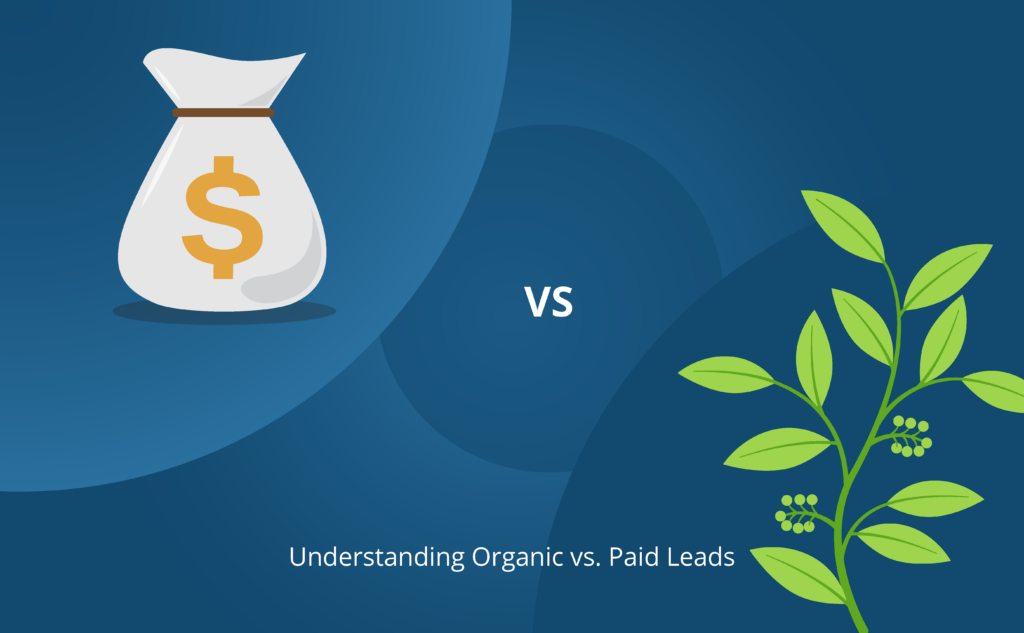
Organic and paid leads are two different marketing strategies for generating traffic to your website.
Organic lead generation refers to the process of creating consistent content that attracts visitors through search engines, social media, or other platforms without paying for advertising. Paid lead generation involves using ads or sponsored content to drive traffic quickly.
Organic leads offer a more cost-effective and sustainable solution for generating traffic to your website in the long-term.
While paid leads can be effective in generating immediate results, organic leads offer a more long-term and cost-effective solution.
Consistent content marketing helps build credibility with your audience and establishes you as an authority in your industry. By investing time into organic lead generation tools like SEO optimization and social media engagement, digital publishers can create sustainable growth for their publication over time.
Organic Leads
Optimizing website content for search engines and creating valuable and relevant blog posts are crucial steps in generating organic leads. Consistent content marketing helps establish authority, builds trust with the audience, and improves search engine rankings. Leveraging social media to increase brand visibility is another effective way of generating organic leads. Posting regular updates that resonate with your target audience can help attract visitors to your website or digital publication.
By implementing a consistent approach across these three tactics – optimizing website content, creating valuable blog posts, and leveraging social media – small business owners can generate more organic leads for their digital publications.
Paid Leads
To complement your consistent content marketing efforts, consider investing in paid leads. Running targeted social media ads can help you reach a wider audience and drive traffic to your website. Investing in pay-per-click advertising campaigns is another effective way to attract potential customers who are actively searching for products or services like yours. Lastly, sponsoring industry events or webinars can boost brand recognition and put you in front of a relevant audience.
However, keep in mind that while paid leads can provide quick results, they may not always be sustainable or cost-effective over the long term. It’s important to assess the ROI of each strategy and adjust accordingly. Additionally, make sure that any paid promotion aligns with your overall brand messaging and tone of voice as consistency is key for building trust with potential customers.
Impact on Digital Publication
Consistent content marketing efforts that generate organic leads can have a significant impact on the success of digital publications. Increased traffic and engagement from these leads can boost SEO rankings, ultimately increasing visibility among potential customers. Additionally, “word of mouth” referrals from satisfied customers who engage with consistent content can lead to more organic leads and further improve credibility.
However, it’s important for publishers to avoid relying solely on paid tactics, as this approach may negatively impact their credibility among readers. While paid leads may drive short-term results, focusing too heavily on them may hinder long-term growth and sustainability. Instead, prioritizing consistent content creation and strategic lead generation efforts can help digital publishers establish a strong foundation for success in today’s competitive landscape.
Tools for Generating Organic Leads
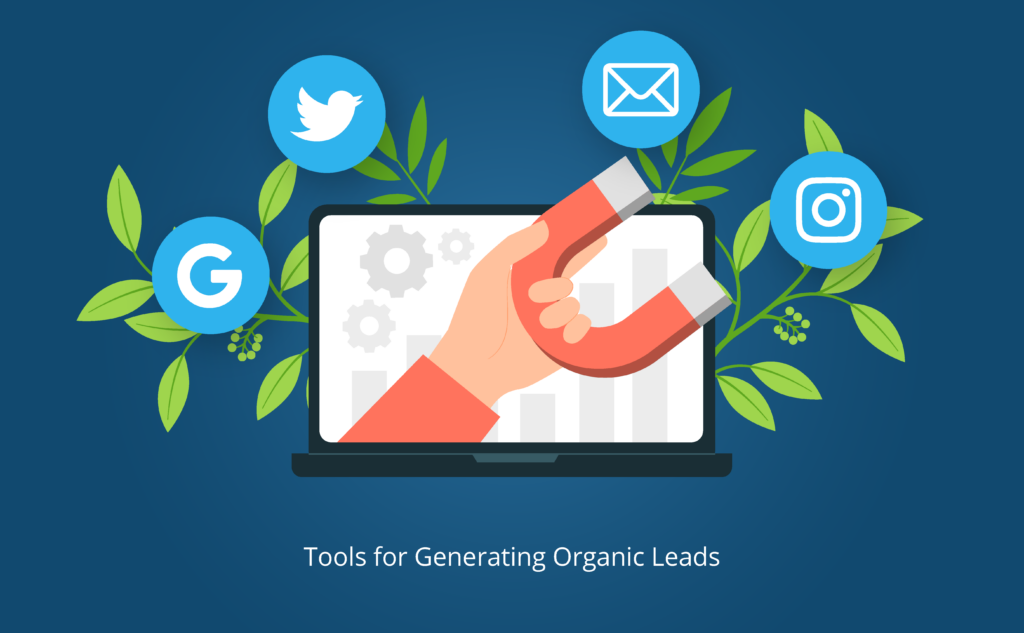
To generate organic leads, small business owners can use various tools such as lead magnets and landing pages. Lead magnets are valuable resources that businesses offer in exchange for a prospect’s contact information. Landing pages provide specific information about a product or service that visitors need to take action. These tools help businesses attract the right audience and increase their chance of converting them into paying customers.
Another tool for generating organic leads is webinars. Webinars allow businesses to showcase their expertise on a topic related to their industry and connect with potential customers in real-time. Additionally, webinars can be recorded and repurposed as evergreen content, attracting new prospects long after the live event has ended.
SEO
Effective SEO involves three key components metrics: keyword research and optimization, on-page optimization techniques, and link building strategies. Keyword research is the foundation of all successful SEO campaigns; it helps publishers identify high-traffic keywords that their target audience is searching for online. On-page optimization techniques ensure that a publisher’s website is structured in a way that search engines can easily crawl and index its content. Finally, link building strategies help to establish a publisher’s authority within their industry by acquiring backlinks from reputable sources.
When it comes to organic lead generation, mastering SEO is crucial for small business owners who want to drive more traffic to their digital publication. By implementing effective keyword research and optimization tactics alongside on-page optimizations like meta tags and internal linking structures, publishers are better positioned to attract relevant leads with genuine interest in their brand or product offering.
Additionally, pursuing white-hat link building strategies like guest blogging or creating high-quality content can help build credibility among both readership and search engines alike while driving more organic traffic over time.
Content Marketing
Creating valuable and informative content for your audience is key to successful organic lead generation. By providing relevant information that addresses their pain points, you can establish yourself as a thought leader in your industry and build trust with potential customers. Using visual aids such as infographics, videos, and images can also enhance engagement with your content and make it more shareable on social media.
Promoting your content through guest blogging and influencer marketing are effective ways to reach a wider audience. By partnering with other brands or individuals who have an established following in your niche, you can tap into their network of followers and drive traffic back to your website. Guest blogging also provides the opportunity to showcase expertise while gaining exposure for both parties involved.
Social Media Marketing
Choosing the right social media platforms for your business is key to successful organic lead generation. Each platform has its unique audience, so it’s important to research and determine which ones are best suited for your target market. Additionally, developing a consistent posting schedule that resonates with your audience will help establish brand recognition and increase engagement on social media.
Engaging with followers through comments, DMs, and shares is another effective way to generate organic leads on social media. By fostering relationships with potential customers, you can build trust and loyalty while also increasing the likelihood of converting them into paying customers. Don’t underestimate the power of thoughtful interaction on social media in driving organic lead generation for your digital publication.
Email Marketing
Building an email list for your digital publication can be a daunting task, but offering incentives such as free downloads or discounts can make it easier to attract subscribers. Personalizing emails based on subscriber behavior is essential in keeping them engaged and interested in what you have to offer. A/B testing subject lines, email designs, and CTAs is also important; this allows you to improve open rates and conversions which will ultimately lead to higher organic lead generation. Remember that each subscriber is unique so continue testing until you find the right combination that works for your audience.
Incorporating these strategies into your email marketing campaign can help drive more organic leads while building a loyal following of subscribers who keep coming back for more. Don’t forget the importance of using engaging content and showcasing high-quality visuals from platforms like magloft.com; doing so not only makes it easy on the eyes but sets expectations for potential customers about what they’re getting from becoming part of your community.
Pros and Cons of Organic and Paid Leads
Generating organic leads can be a cost-effective option for small businesses. Organic leads are earned through creating valuable content that is optimized for search engines, social media channels and email campaigns. This method of lead generation builds trust with potential clients as they perceive the business as knowledgeable in their industry.
However, generating organic leads may require a consistent effort over time to achieve desired results. Visibility on search engine results pages takes time to build up, and it can take several months before a website starts receiving significant traffic from an organic search campaign. Moreover, keeping up with changes to Google algorithms and SEO best practices requires attention to detail and ongoing optimization efforts by digital publishers who want to gain an edge in their competition.
Pros of Organic Leads
Generating organic leads is an effective way to attract higher quality leads as they are generated from genuine interest. These leads have a greater chance of conversion as they are already interested in what you offer, resulting in increased revenue and ROI. In addition, generating organic leads has long-term benefits in terms of brand credibility and customer loyalty, which is important for small businesses looking to establish themselves in the market. It’s also cost-effective, as there are no direct expenses involved in acquiring these types of leads compared to paid advertising or lead generation tactics that require ongoing investment.
Cons of Organic Leads
Generating organic leads can be a time-consuming process that may not yield immediate or consistent results. It requires a thorough understanding of SEO techniques and content marketing in order to effectively create engaging content that will attract potential customers.
Additionally, small business owners may find it difficult to compete with larger companies who have the resources to invest heavily in their organic lead generation efforts. Despite these challenges, however, generating high-quality organic leads is essential for long-term success and growth in the digital publishing industry.
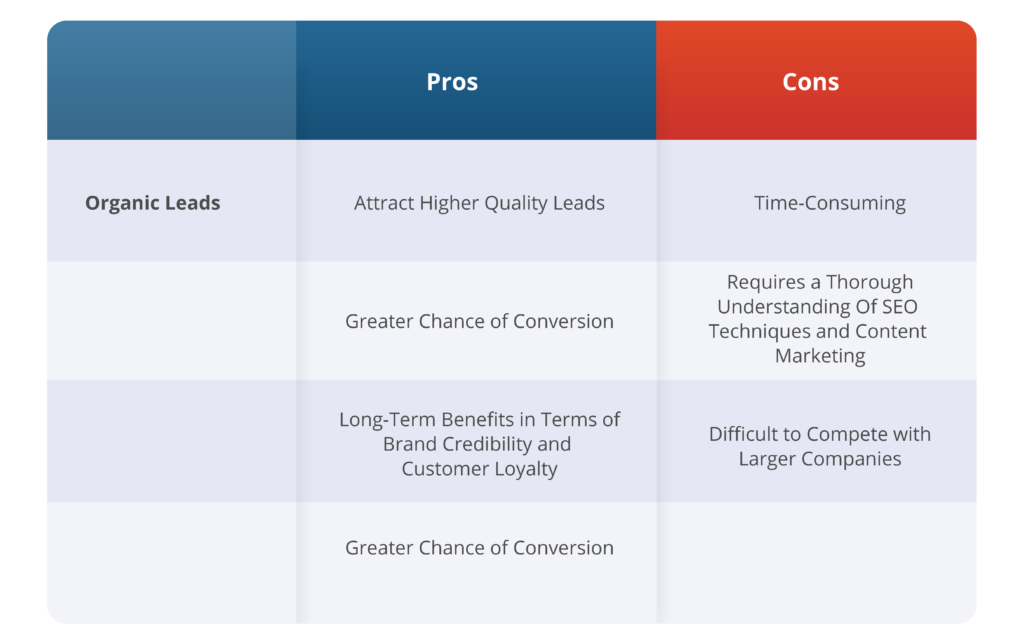
Pros of Paid Leads
Paid leads offer several advantages for small business owners. Firstly, they allow you to target specific demographics and audiences for more efficient lead generation. With paid advertising platforms, such as Google Ads or Facebook Ads, you can tailor your ads to reach people who are most likely to be interested in your products or services.
Secondly, paid leads provide quick results that can lead to increased revenue in the short term. Unlike organic lead generation efforts which may take time to yield results, paid ads can generate immediate traffic and conversions.
Lastly, with paid leads comes more control over the quantity and timing of leads generated. You can adjust your ad budget based on your needs and pause campaigns whenever necessary. This flexibility allows you to manage costs while still generating high-quality leads efficiently through targeted campaigns on websites like magloft.com
Cons of Paid Leads
Paid leads may seem like a quick solution to generating more business, but they come with their own set of challenges. One major concern is the possibility for high costs without guaranteed return on investment (ROI). If not properly managed, paid campaigns can quickly become costly while still failing to attract quality leads. Another risk is that low-quality leads could be generated if targeting isn’t precise enough. This can result in wasted time and resources trying to convert prospects who aren’t truly interested in your products or services. Paid campaigns alone also lack the ability to establish long-term relationships with customers, which is crucial for building brand loyalty and repeat business.
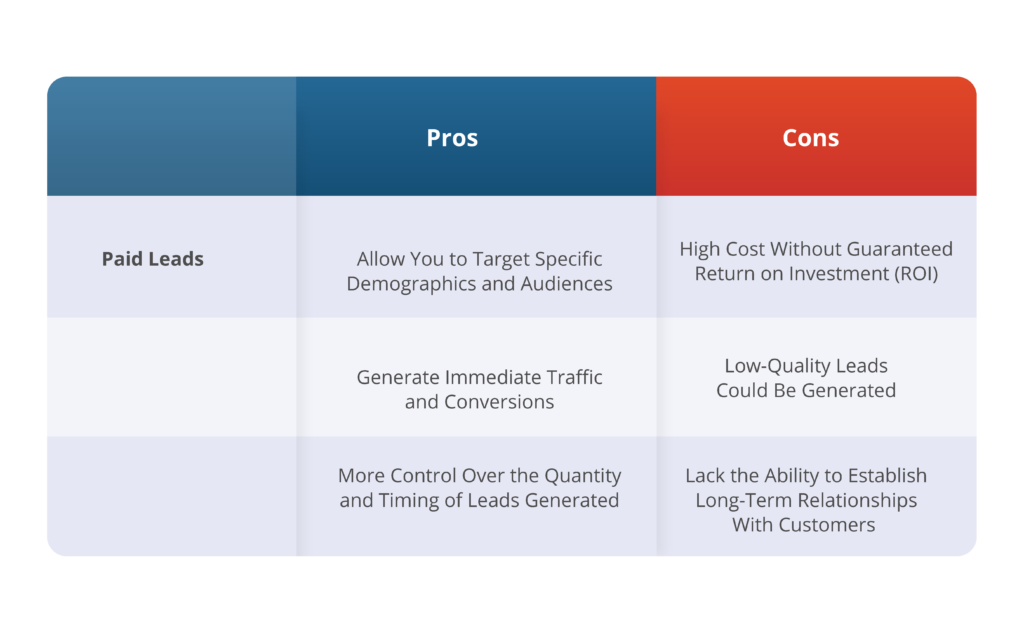
Examples of Organic Leads in Digital Publications
Digital publishers can generate organic leads through various means. One example is by creating high-quality blog content that addresses the pain points of their target audience. When readers find the content informative and helpful, they are more likely to share it with others and even subscribe to future updates.
Another approach is by implementing effective email marketing campaigns. Digital publications can build a list of subscribers through opt-ins on their website or landing pages. They can then send targeted emails that provide value to recipients, encourage them to engage with the publication further, and eventually convert into paying customers or clients.
Organic Traffic from Search Engines
To generate organic traffic from search engines, keyword research and optimization strategies are essential. By identifying the right keywords and optimizing your content with them, you can improve your search engine rankings and attract more visitors to your website. Additionally, creating high-quality content that follows proper on-page SEO techniques will help search engines understand the relevance of your pages.
Another effective way to build organic traffic is through link building campaigns. Guest blogging is a great way to get backlinks from other websites while also sharing valuable content with a new audience. Influencer outreach can help you connect with industry leaders who may be willing to share or link back to your content. A well-executed link-building campaign can lead to significant increases in organic traffic over time.
Social Media Engagement
To master social media engagement and generate organic leads for your small business, it’s important to choose the right social media platforms for your specific audience. By conducting market research and analyzing your target demographics, you can determine which platforms will provide the best return on investment for your content marketing efforts.
Once you’ve chosen the appropriate platforms, creating engaging content that resonates with your audience is key in driving traffic and increasing conversions. This includes utilizing visually appealing graphics or videos, crafting compelling headlines, and incorporating industry-specific keywords into posts.
Running paid social media campaigns can also be a valuable tool in driving targeted traffic and generating leads. By leveraging advanced targeting options such as location-based advertising or interest-based targeting, you can ensure that your ads are reaching those who are most likely to engage with them.
Referral Traffic from Other Websites
Building relationships with other websites in your industry or niche is a great way to increase referral traffic to your website. By partnering with other publishers, you can share each other’s content and tap into each other’s audiences. This helps establish you as an authority figure in your field and ultimately leads to more organic lead generation for your digital publication.
Creating unique content that can be shared across various platforms like blogs, podcasts etc., is key when it comes to driving referral traffic from other websites. By providing value-added content that people will want to share, you increase the likelihood of visitors clicking through to your website. Additionally, participating in relevant online communities and sharing helpful insights can help establish yourself as an expert in your field and drive even more referral traffic from interested parties.
How to Generate Organic Leads for Your Digital Publication
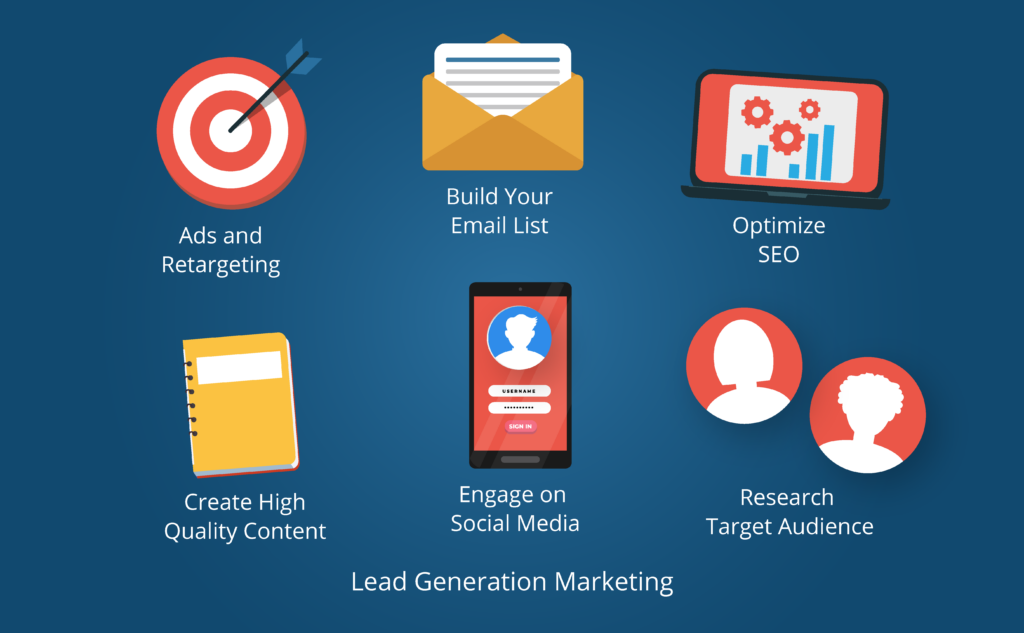
To generate organic leads for your digital publication, start by researching your target audience. Understand their needs and preferences, and create content that speaks directly to them. Your content should be high-quality, informative, and engaging.
Optimize your website for SEO so that it appears in search engine results when potential readers search for relevant keywords or topics. Engage with your audience on social media platforms where they are most active – this will help you build trust and credibility with them. Finally, focus on building a strong email list by offering valuable incentives such as exclusive content or discounts in exchange for sign-ups. By following these steps, you can generate organic leads that will help grow the readership of your digital publication over time.
Research Your Target Audience
Identifying and understanding your target audience is crucial for organic lead generation. Conduct thorough research to gain insights into their pain points, challenges, behaviors and preferences. Creating buyer personas based on this information will help you develop content that resonates with them.
To effectively research your target audience, consider the following:
- Use analytics tools to gather data about website visitors
- Conduct surveys or interviews with current customers or potential leads
- Analyze social media conversations related to your industry or niche
- Monitor competitors’ websites and social media accounts for insights on their audience
Once you have gathered enough data, use it to create detailed buyer personas that include information such as age range, job title/industry, interests/hobbies and pain points/challenges they face in relation to your product/service. These personas will guide your content creation strategy by ensuring that you are addressing the needs of your ideal customer in a way that resonates with them.
Create High-Quality Content
Develop a content strategy that aligns with the needs of your audience to create high-quality content. This means investing time in researching and understanding what topics are relevant and valuable to your target audience. Once you have identified these areas, produce original, informative, and engaging content that offers insights or solves problems for your readers.
To enhance user experience on your website or digital publication, invest in visual elements such as images or videos. These can help break up long blocks of text while also providing additional context and information for readers. Don’t forget to optimize these visuals with alt tags and meta descriptions for improved SEO value.
- Research topics relevant to the needs of target audience
- Produce original, informative & engaging content
- Use visual elements such as images & videos
- Optimize visuals with alt tags & meta descriptions
Optimize Your Website for SEO
Conducting keyword research is a crucial step in optimizing your website for SEO. By determining relevant search terms for your business niche, you can create content that resonates with your target audience and boosts organic lead generation. On-page optimization techniques such as meta tags, header tags, and internal linking can also enhance the visibility of your website on search engines.
In addition to these techniques, it’s important to ensure that your website speed is optimized for mobile devices. With more people using their smartphones to browse the web than ever before, having a mobile-friendly site can make all the difference in attracting and retaining potential leads.
Optimizing Your Website for SEO:
- Conduct keyword research to determine relevant search terms
- Implement on-page optimization techniques such as meta tags and header tags
- Ensure website speed is optimized for mobile devices
Engage with Your Audience on Social Media
To effectively engage with your target audience on social media, it’s essential to focus on the platforms where they are most active. Building an active presence through consistent posting and interaction can foster engagement and community.
Encourage participation by promptly responding to comments and messages, showing that you value their input. User-generated content is also a powerful tool to build community by featuring customers’ experiences or feedback.
- Determine which social media platforms are most relevant to your audience and focus on building an active presence there.
- Encourage engagement by responding promptly to comments and messages.
- Incorporate user-generated content into your social media strategy to foster a sense of community.
By following these tips, you can create meaningful connections with your target audience while promoting organic lead generation for your digital publication.
Build Your Email List
In order to build your email list organically, it’s important to offer value and tailor your messaging to subscriber interests. Here are some tips:
- Incentivize sign-ups by offering useful resources or exclusive promotions
- Segment email lists according to subscriber interests for more targeted messaging
- A/B test subject lines and CTAs regularly for optimal performance
By following these strategies, you can attract engaged subscribers who are more likely to convert into customers. Don’t forget that building an organic email list takes time and effort – but the payoff is worth it in the end!
Conclusion
Organic lead generation has become an essential part of any successful business strategy. By using various tactics such as SEO optimization and social media marketing, small business owners can effectively attract potential customers and improve their overall online presence.
It’s important to note that mastering organic lead generation is not a quick fix solution but rather a long-term investment. Consistency in implementing these strategies will ultimately result in higher quality leads and increased revenue for your business. Remember to continuously monitor and adjust your approach based on performance data to ensure maximum success.
